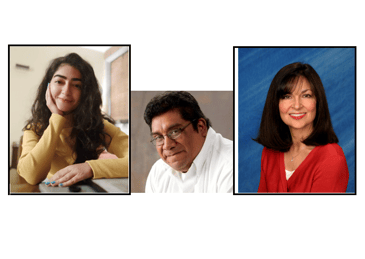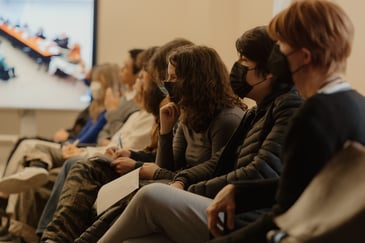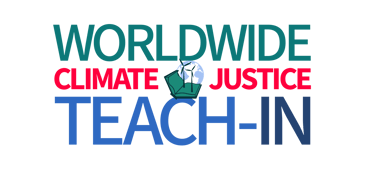I Attended a Dozen Climate Teach-ins: You Can Too
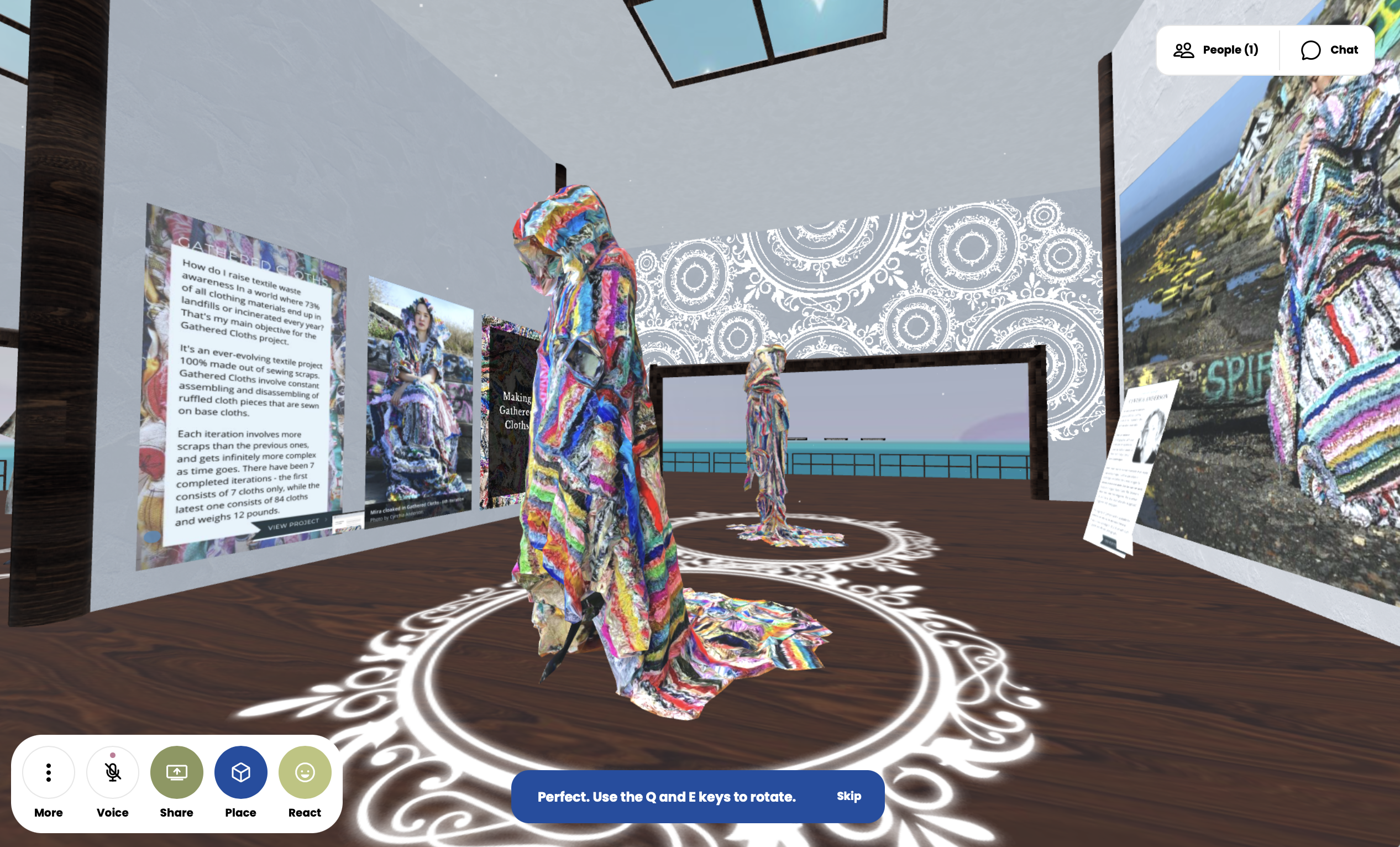
David Blockstein, PhD. Co-Director, Worldwide Teach-In on Climate and Justice
The 2023 WorldWide Teach-in on Climate and Justice includes some 300 colleges, universities, schools and organizations in more than 50 countries reaching some 30,000 students in a series of events and classes.
Because many of the events had virtual components or were entirely online, I attended more than a dozen Teach-Ins on three continents during the week of March 29 without leaving my home office. They included lectures, discussion panels, conversations, workshops, a presentation by students, a tour of a virtual art gallery, a climate game show, poetry and other inspiring activities.
Temple University
On March 27, I joined Temple University in Philadelphia, USA where Sustainability Manager, Caroline Burkholder and student leaders from the Office of Sustainability discussed how to design and execute a successful campaign for environmental action on and off campus, starting with telling your personal story or "climate moment." They were joined for the in-person teach-in by members of the Philadelphia Higher Education Network for Neighborhood Development (PHENND). Caroline noted that “change moves at the speed of trust.”
Parami University
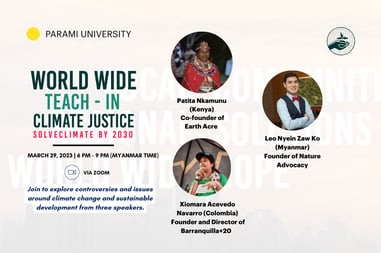
March 29th was the main day for the Teach-In. I didn’t get up early enough to join the first-ever Teach-In from Parami University, founded in Burma but now fully online, and with a mission of serving southeast Asian students. Their Teach-in was a webinar with a star-studded cast of global climate leaders including activists from Kenya, Colombia and Myanmar. I look forward to watching it. Parami is holding a Behavior Change for Climate Video Competition The submission deadline is April 30, 2023.
Potsdam University
I began my day virtually in Germany where the Research Institute for Sustainability at Potsdam University held a fascinating panel discussion about protests against the forced eviction of the residents of the village Lützerath to expand the Garzweiler lignite mine and gain access to the lignite coal deposits that are under the village. Although the protests made headlines around the world, the protesters were forcibly removed and the lignite mine expanded with the active complicity of the Green Party members of the German governing coalition.
Elmira College
Next I “traveled” to upstate New York, USA where Elmira College held a day-long teach-in. It featured 2 sets of 5 panels that included faculty members, university staff and students as well as local government officials and business people. I joined parts of discussions about Climate Careers and about Climate Justice. A speaker noted that the International Labor Organization (ILO) forecasts 23 million “green jobs” by 2030. A 3-minute segment on Elmira College's Teach-in was featured on WENY TV News, the ABC & CBS affiliate news station for the Twin Tiers of New York and Pennsylvania region.
Universidad del Norte
I briefly joined the two-hour Teach-In of Colombian Caribbean at Universidad del Norte in Colombia, South America. l listened to a panel that included a presentation on the recent report about the Intergovernmental Panel on Climate Change (IPCC) that presented dire warnings for the world, but also proposed solutions.
University of New England
The University of New England had more than 130 faculty members and other attendees at a follow-up event to a January 12, 2023 workshop designed to help faculty incorporate climate change and climate justice into their courses. Faculty members gave great examples of using graphs of climate emissions and impacts globally to study climate justice in an algebra class. One of the professors asked the Artificial Intelligence program ChatGPT to generate topics to teach about climate change in his field. The suggestions were very good.
Cambio Climático: Una Perspectiva desde Universidades en Latinoamérica
“Cambio climático: una perspectiva desde universidades en Latinoamérica” was a partnership between the Mexican Technological University, TEC de Monterrey, and the Universidad de Los Andes in Bogota, Colombia, South America. I enjoyed the lively discussion (which can be watched here), but my Spanish is not good enough to report on what was said. The Teach-In was one of three organized by the Center for Sustainable Development Goals (CODS) at Universidad de Los Andes, our lead organizing partner in Latin America and the Caribbean.
Virtual Textile Art Gallery
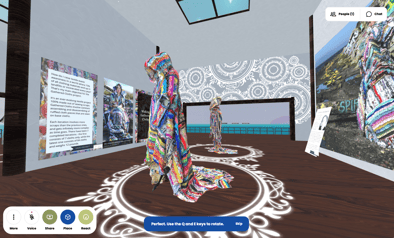
I joined artist Mira Musank in her virtual Textile Art Gallery for a 1-hour tour. Mira is an interdisciplinary fiber artist who tackles overconsumption and waste in the climate art activism realm. She transforms textile waste into custom garments. Her virtual gallery is part of Climate Gallery’s “A Study in Artivism” exhibition. The Textile Art Gallery is filled with more than a dozen 3D models of her physical constructions, stories, and works from her 6 collaborators. Although I knew nothing about textiles, fashion, or virtually reality, I thoroughly enjoyed this teach-in where the physical garments are temporary, but the virtual images are permanent. The gallery is open for self-tours at any time and guided tours will be offered on April 17 during San Francisco Climate Week.
Northern Arizona University
Northern Arizona University had a very well attended all-day event that enabled the university community to discuss the real issues and questions that come up in their lives and communities. The livestreamed "Visioning the Future We Want to Build" keynote discussion featured student speakers and lively conversation. It was great to see a room filled with students and others sitting at round tables sharing their ideas and perspectives.
University of Kansas
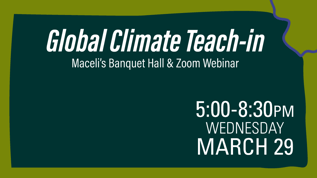 University of Kansas, USA had a multifaceted evening session that included a powerful Land Acknowledgment followed by commentary on what it means. I was pleased to listen to an old friend, Dr. Town Peterson, as the first speaker on a panel on open access and climate change. The panel showed how open access to datasets and publication can be powerful tools to help combat climate change. The event included an original presentation by theater students who said that they didn’t know much about climate change and solutions so they created a performance that asked but did not answer questions.
University of Kansas, USA had a multifaceted evening session that included a powerful Land Acknowledgment followed by commentary on what it means. I was pleased to listen to an old friend, Dr. Town Peterson, as the first speaker on a panel on open access and climate change. The panel showed how open access to datasets and publication can be powerful tools to help combat climate change. The event included an original presentation by theater students who said that they didn’t know much about climate change and solutions so they created a performance that asked but did not answer questions.
Kansas State University
I am sorry that I missed the concurrent Teach-In "Pathways to Net Zero Greenhouse Gas Emissions by 2050" at nearby Kansas State University, USA. I am looking forward to watching the recording.
Beat! That! Heat!
I had a very different interactive experience as a participant in BEAT! THAT! HEAT!
A brand new virtual climate action game show www.climateactiongameshow.com, I was on a team of 6 people including our social media intern Mira P who helped to promote this teach-in. Our team, the self-named Cautious Optimists, competed against two other teams, answering questions, identifying songs, yakking it up (play the game to understand this inside joke) and even showing off a few dance moves. We came in third. Each of the other teams had Worried in their names. The 60-minute game was fast-paced with a variety of questions about climate change and solutions along with a call to action. We all learned and had a good time with a unique approach to climate education. I expect that BEAT! THAT! HEAT! will become very popular on campuses. There will be free public games on Earth Day and April 28: https://www.tickettailor.com/events/score. The registration form includes an option for a donation to climate action and renewable energy projects.
University of Alaska Anchorage
My long day through time zones, concluded with the University of Alaska Anchorage, USA’s Teach-in, organized by the UAA Climate Club. A really powerful presentation by Rick Steiner, UAA Professor Emeritus and Founder of Earth Oasis, combined amazing images of Arctic beauty with stark warnings from a region that is warming at 4 times the rate of the rest of the world with implications for the weather of the entire planet. Referencing the IPCC’s warning that “we are firmly on track to an unlivable world,” he pointed out that this is “our last best chance to get this right.” The diverse program also included poet Marybeth Holleman, author Kim Heacox, UAA professor of art and art education Herminia Din, Indigenous elder Ilarion Merculieff Founder & President, Global Center for Indigenous Leadership & Lifeways and a closing panel on real world climate solutions that included former state legislator Ivy Spohnholz, currently Alaska State Director, The Nature Conservancy.
Massachusetts College of Arts and Design
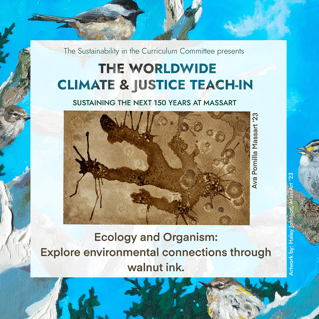 Teach-Ins continued Thursday and I continued to attend virtually. In 2022, I greatly enjoyed my virtual attendance in the teach-in organized by the Massachusetts College of Arts and Design (MassArt) - the only college of arts and design to hold a Teach-In. This year MassArt expanded to a week-long teach-in Sustaining the Next 150 Years at MassArt that primarily featured hands-on workshops with a few livestreamed presentations such as the ones I attended with sculptor Nancy Selvage, Visiting Artist (FA3D / Ceramics) and on What Does a Sustainable Textile Industry Mean? with Karen Hampton, Faculty, FA3D / Fibers (on Friday).
Teach-Ins continued Thursday and I continued to attend virtually. In 2022, I greatly enjoyed my virtual attendance in the teach-in organized by the Massachusetts College of Arts and Design (MassArt) - the only college of arts and design to hold a Teach-In. This year MassArt expanded to a week-long teach-in Sustaining the Next 150 Years at MassArt that primarily featured hands-on workshops with a few livestreamed presentations such as the ones I attended with sculptor Nancy Selvage, Visiting Artist (FA3D / Ceramics) and on What Does a Sustainable Textile Industry Mean? with Karen Hampton, Faculty, FA3D / Fibers (on Friday).
Climate Stories Project
The Climate Stories Project conducted an excellent hour-long workshop on how to tell your climate story. CSP founder Jason Davis emphasized the importance of “I statements” that provide specific details and sensory descriptions: “Show, don’t tell.” One powerful prompt he offered is, “What do you care about in your home place or community and how is it threatened by the changing climate?” Jason also lauded the assistance of our social media intern Alexandra D of Central European University. If you were not able to attend the workshop, you can view the recording and the slides.
Brandeis University
My final teach-in was organized by the Center for European and German Studies (CEGS) at Brandeis University. As a highlight of CEGS’s 25th anniversary celebration, they held a conference in coordination with Brandeis' Year of Climate Action (YOCA) and the launch of CEGS director Sabine von Mering’s English translation of Luisa Neubauer and Alex Repenning's book, Beginning to End the Climate Crisis: A History of Our Future. The half-day event featured stimulating conversation on German climate action, climate justice, and climate activism, and what must be done to protect a livable future. Climate action leader and journalist Bill McKibben engaged with Brandeis students to discuss what needs to be done and how to act on the time frame necessary to head off the worst consequences of climate change.
University of Nebraska Omaha + Shaheed Benazir Bhutto Women University in Peshawar, Pakistan
On April 14, I listened to a fascinating discussion between faculty and students at University of Nebraska-Omaha and Shaheed Benazir Bhutto Women University in Peshawar, Pakistan. Both groups had done a reading of the short play "When Birds Fly Away" by Pakistani playwright and actor Maha Hasan. This script was selected in our competition for original short plays about climate change and justice. Under the leadership of Farrah Grant of UNO, the participants at each university shared their thoughts about the play and related issues including climate impacts, justice, displacement and migration, gender, food and economics. Both the US and Pakistan are suffering from flooding and other climate impacts but the US emits more than 25 times as many greenhouse gases as does Pakistan.
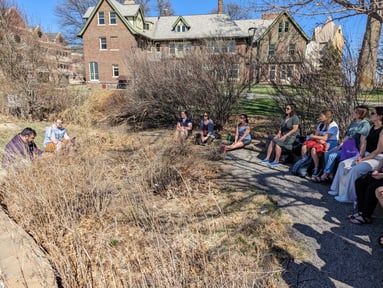
It was exciting to learn how this play, written in Urdu and translated by the playwright into English, was able to generate this cross-national and cross-cultural conversation. Maha Hasan is having the other plays we selected “All the Way Back” by Donna Latham and “What Lies in the Fire” by E. Salvador Chapman into English. I look forward to other performances and discussions about these plays over the coming year.
Most of the other teach-ins were in-person events that were locally designed and implemented for the local community and students. Many were recorded and will be posted on Worldwide Teach-In for Climate - YouTube. I look forward to watching them.
This variety of Teach-Ins around the world shows that there are many different ways to communicate about climate change, solutions and justice. The Climate Emergency is too important to rely on scientists alone. Each person regardless of their profession and area of expertise has an obligation to educate others and advance just solutions. The Worldwide Teach-In on Climate and Justice shows that this is possible.
Looking ahead, scientists are forecasting that 2023 and 2024 are likely to be very hot years that could well shatter global temperature records. Against that backdrop, the WordWide Teach-In on Climate and Justice will be back bigger and stronger with a “Worldwide Climate Education Week” from April 1-8, 2024. Climate-concerned educators and students can sign up here to stay informed.
The Worldwide Teach-in is a project of the Graduate Programs in Sustainability at Bard College in New York, in partnership with educators across the world. The project has received support from the Open Society University Network, Lever for Change, an affiliate of the MacArthur Foundation, and the US Embassy in Kyrgyzstan.
